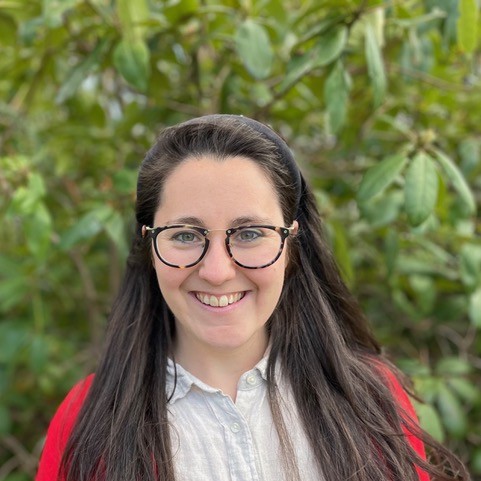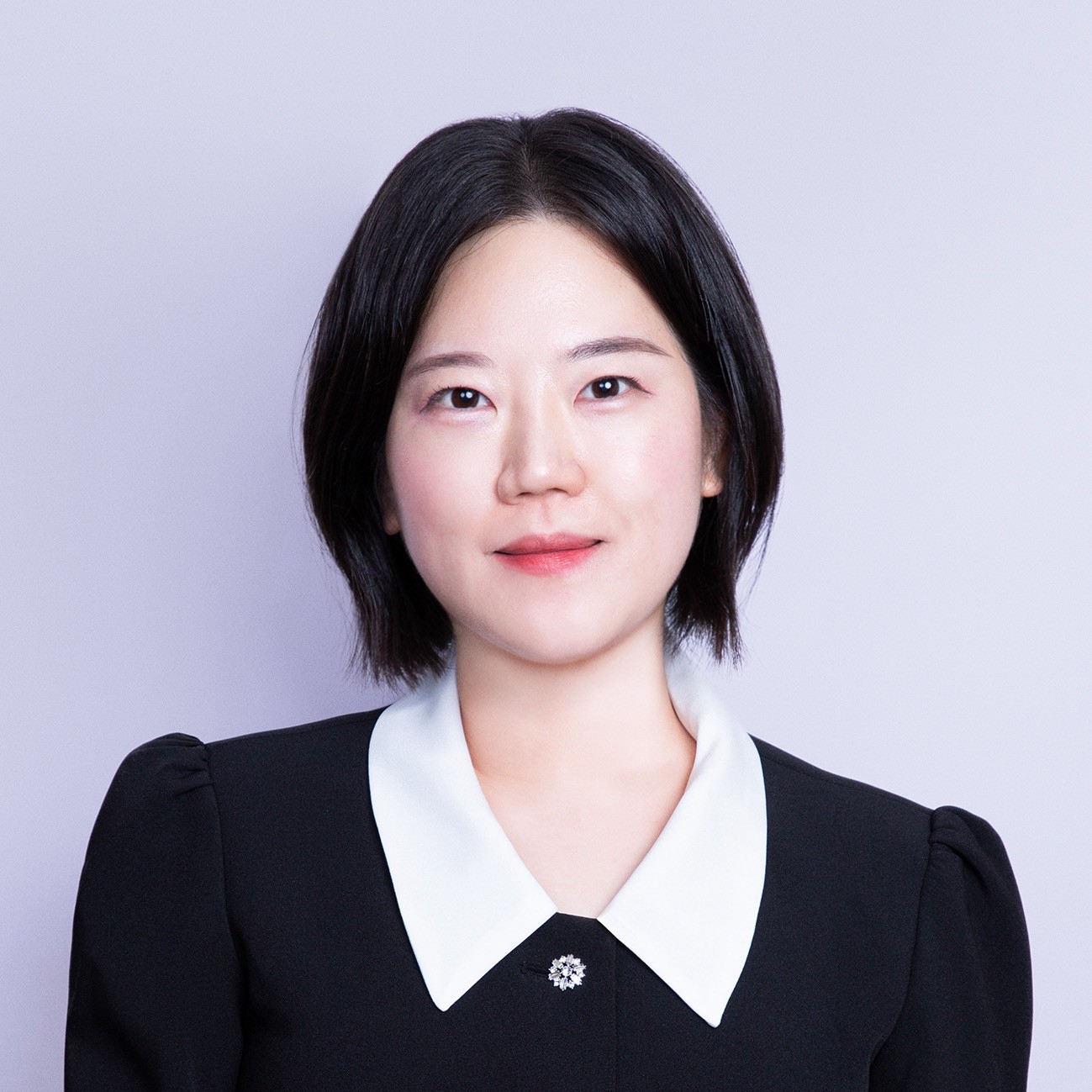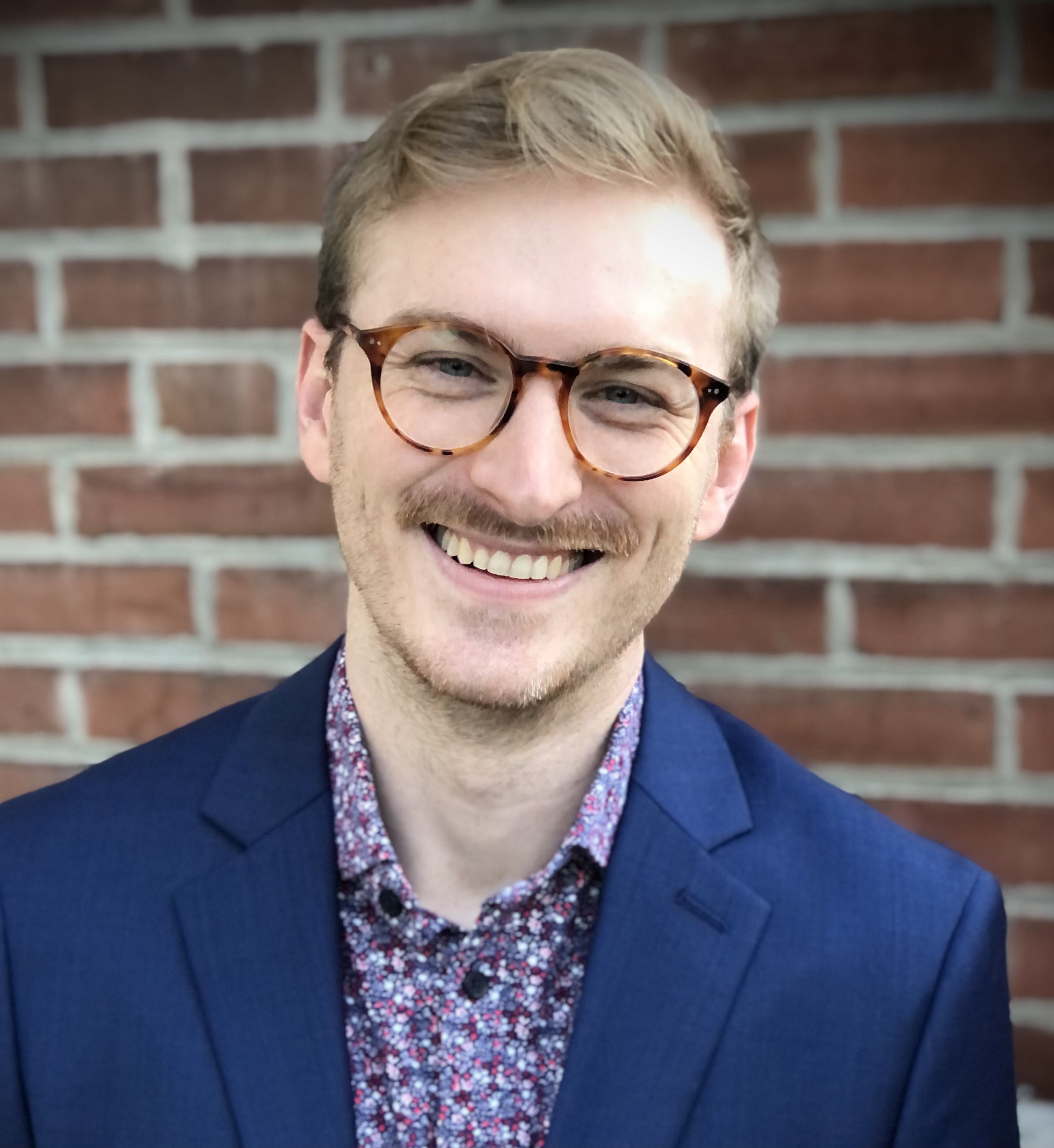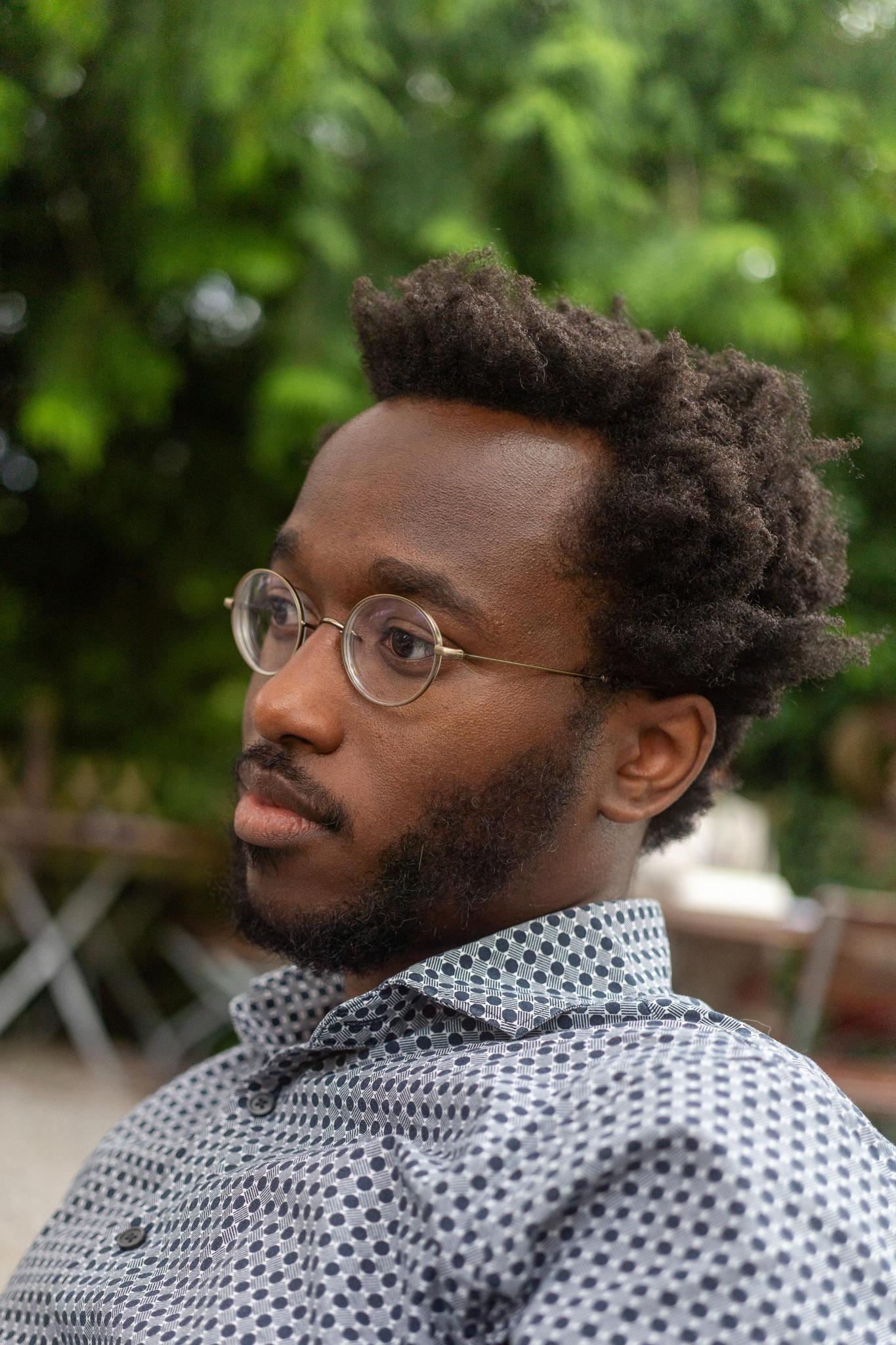
 Undergraduate institution: Boston College
Undergraduate institution: Boston College
Ph.D. institution: Yale University
Dissertation title: The Zoogeochemistry of Northern Ungulates
Dissertation advisor: Oswald Schmitz
Unit: School for Environment and Sustainability
UM PPFP primary mentors: Inés Ibáñez, School for Environment and Sustainability
 Undergraduate institution: Jeonbuk National University
Undergraduate institution: Jeonbuk National University
Ph.D. institution: Duke University
Dissertation title: The Influence of Social Determinants of Health, Diet, and Symptom Experiences in Patients with Colorectal Cancer
Dissertation advisor: Rosa Gonzalez-Guarda
Unit: School of Nursing
UM PPFP primary mentor: Yun Jiang, School of Nursing
Undergraduate institution: University of Michigan
Ph.D. institution: Johns Hopkins University
Dissertation title: Understanding the Impact of Partner-Perpetrated Reproductive Coercion on Postpartum Outcomes: Longitudinal Evidence from Ethiopia
Dissertation advisors: Shannon N. Wood and Linnea Zimmerman
Unit: Nursing
UM PPFP primary mentors: Yasamin Kusunoki and Michelle Munro-Kramer, School of Nursing
.jpeg) Undergraduate institution: University of Illinois at Urbana-Champaign
Undergraduate institution: University of Illinois at Urbana-Champaign
Ph.D. institution: The University of Chicago
Dissertation title: A National Assessment of School District Variation in Black Student Academic Achievement
Dissertation advisors: Stephen W. Raudenbush, Charles M. Payne, and Julia R. Henly
Unit: Marsal Family School of Education
UM PPFP primary mentors: Jamaal Matthews, Marsal Family School of Education
 Undergraduate institution: Willamette University
Undergraduate institution: Willamette University
Ph.D. institution: University of Southern California
Dissertation title: A multiple comparison case study of Los Angeles Public High Schools: LGBTQA+ policies and facilities, student advocacy, and change in policies and facilities over time
Dissertation advisor: John Blosnich
Unit: School of Social Work
UM PPFP primary mentors: Shanna Kattari, Candace Christensen, and Ashley Lacombe-Duncan, Social Work
 Undergraduate institution: Yale University
Undergraduate institution: Yale University
Ph.D. institution: Carnegie Mellon University
Dissertation title: Setup Times in Multiserver Systems
Dissertation advisor: Weina Wang
Unit: Electrical Engineering and Computer Science
UM PPFP primary mentor: Lei Ying, electrical Engineering and Computer Sciences
 Undergraduate institution: Rollins College
Undergraduate institution: Rollins College
Ph.D. institution: University of Texas at Austin
Dissertation title: Patient Acts: Performance, Disability, and the Making of Mad Memory
Dissertation advisors: Rebecca Rossen
Unit: School of Music, Theater, & Dance
UM PPFP primary mentors: Petra Kuppers, Theatre and Drama
 Undergraduate institution: Yale University
Undergraduate institution: Yale University
Ph.D. institution: Stanford University
Dissertation title: Traps and Algorithms: Obscuring the Performer and Audience
Dissertation advisor: Jaroslaw Kapuscinski
Unit: School of Music, Theater, & Dance
UM PPFP primary mentors: John Granzow, Performing Arts Technology
 Undergraduate institution: Hampton University
Undergraduate institution: Hampton University
Ph.D. institution: University of California, Los Angeles
Dissertation title: Characterizing Near Nadir Ka-band Backscatter for Mapping Water Surfaces with InSAR
Dissertation advisors: Laurence C. Smith and Dennis P. Lettenmaier
Unit: Earth and Environmental Sciences
UM PPFP primary mentors: Brian Arbic and Eric Hetland, Earth and Environmental Sciences
 Undergraduate institution: Vassar College
Undergraduate institution: Vassar College
Ph.D. institution: Northwestern University
Dissertation title: Black Feminism in Popular Culture: Exploring Representations of Black Feminism in News and Entertainment Media
Dissertation advisor: Aymar Jean Christian
Unit: School of Information
UM PPFP primary mentors: Nicole Ellison, School of Information
 Undergraduate institution: University of Massachusetts, Amherst
Undergraduate institution: University of Massachusetts, Amherst
Ph.D. institution: MIT
Dissertation title: Machine Learning and Causality: Building reliable and efficient models for decision making
Dissertation advisors: John Guttag
Unit: Computer Science and Engineering
UM PPFP primary mentor: Jenna Wiens, Computer Science and Engineering
Position following Presidential Postdoc: tenure-track assistant professor at U-M.
 Undergraduate institution: Princeton University
Undergraduate institution: Princeton University
Ph.D. institution: Stanford University
Dissertation title: Emerging technology integration for improving water reuse treatment
Dissertation advisors: William Mitch
Unit: Civil and Environmental Engineering
UM PPFP primary mentor: Krista Wigginton, Civil and Environmental Engineering
Position following Presidential Postdoc: tenure-track assistant professor at U-M.
 Undergraduate institution: University of Georgia
Undergraduate institution: University of Georgia
Ph.D. institution: Georgia Institute of Technology
Dissertation title: Vamos a Resolver: Collaboratively Configuring the Internet in Havana
Dissertation advisors: Amy Bruckman and Neha Kumar
Unit: School of Information
UM PPFP primary mentor: Kentaro Toyama, School of Information
Position following Presidential Postdoc: tenure-track assistant professor at U-M.
 Undergraduate institution: Rippon College
Undergraduate institution: Rippon College
Ph.D. institution: University of California, San Diego
Dissertation title: Molecular signatures of microbial metabolism in the marine water column.
Dissertation advisors: Lihini Aluwihare
Unit: Earth and Environmental Sciences
UM PPFP primary mentor: Gregory Dick, Earth and Environmental Sciences
Position following Presidential Postdoc: tenure-track assistant professor at U-M.
 Undergraduate institution: University of Notre Dame
Undergraduate institution: University of Notre Dame
Ph.D. institution: Stanford University
Dissertation title: The Racial Politics of Police Violence in The United States
Dissertation advisors: David D. Laitin
Unit: Political Science
UM PPFP primary mentor: Christian Davenport, Political Science
Position following Presidential Postdoc: tenure-track assistant professor at U-M.
 Undergraduate institution: Carnegie Mellon University
Undergraduate institution: Carnegie Mellon University
Ph.D. institution: University of California, Irvine
Dissertation title: The Social Complexities of Transgender Identity Disclosure on Social Media
Dissertation advisors: Gillian R. Hayes
Unit: School of Information
UM PPFP primary mentor: Nicole Ellison, School of Information
Position following Presidential Postdoc: tenure-track associate professor at U-M.
 Undergraduate institution: Massachusetts Institute of Technology
Undergraduate institution: Massachusetts Institute of Technology
Ph.D. institution: Northwestern University
Dissertation title: Distributed Apprenticeship in Informal Communities of Entrepreneurs
Dissertation advisors: Elizabeth Gerber
Unit: School of Information
UM PPFP primary mentor: Kentaro Toyama, School of Information; Mark Newman, School of Information
Position following Presidential Postdoc: tenure-track assistant professor at U-M.
 Undergraduate institution: Florida International University
Undergraduate institution: Florida International University
Ph.D. institution: Tohoku University
Dissertation title: Study of the Strangeness Photoproduction Process In the γd → ΛX Reaction at Photon Energies up to 1.08 GEV
Dissertation advisors: Kazushige Maeda
Unit: Physics
UM PPFP primary mentor: Myron Campbell, Physics
Position following Presidential Postdoc: program officer at the Department of Energy (Office of High Energy Physics).
 Undergraduate institution: University of Maryland, College Park
Undergraduate institution: University of Maryland, College Park
Ph.D. institution: Northwestern University
Dissertation title: Understanding and Developing Interactive Voice Response Systems to Support Online Engagement of Older Adults
Dissertation advisors: Anne Marie Piper
Unit: School of Information
UM PPFP primary mentor: Nicole Ellison, School of Information
Position following Presidential Postdoc: tenure-track associate professor at U-M.
 Undergraduate institution: Massachusetts Institute of Technology
Undergraduate institution: Massachusetts Institute of Technology
Ph.D. institution: Harvard University
Dissertation title: Developmental and Genetic Mechanisms of Ovariole Number Evolution in Drosophila
Dissertation advisors: Cassandra Extavour
Unit: Ecology and Evolutionary Biology
UM PPFP primary mentor: Patricia Wittkopp, Ecology and Evolutionary Biology; Molecular, Cellular, and Developmental Biology
Position following Presidential Postdoc: tenure-track assistant professor at U-M.
 Undergraduate institution: University of Texas
Undergraduate institution: University of Texas
Ph.D. institution: University of california, Irvine
Dissertation title: An Analysis of the Behavior and Intensity of Extreme Atmospheric Moisture
Dissertation advisors: Gudrun Magnusdottir
Unit: Climate and Space Scinces and Engineering
UM PPFP primary mentor: Christiane Jablonowski, Climate and Space Scinces and Engineering
Position following Presidential Postdoc: Tomorrow.io.
 Undergraduate institution: University of Michigan
Undergraduate institution: University of Michigan
Ph.D. institution: University of California, Berkeley
Dissertation title: Developing an Understanding of Neutron-Gamma Pulse Shape Discrimination and the Anisotropic Response to Neutron Events in Organic Crystal Scintillators
Dissertation advisors: Karl van Bibber
Unit: Nuclear Engineering & Radiological Sciences
UM PPFP primary mentor: Sara Pozzi, NERS
Position following Presidential Postdoc: Intel Corporation.
 Undergraduate institution: Massachusetts Institute of Technology
Undergraduate institution: Massachusetts Institute of Technology
Ph.D. institution: Carnegie Mellon University
Dissertation title: Expressing Interactivity with States and Constraints
Dissertation advisors: Brad Myers
Unit: School of Information
UM PPFP primary mentor: Eytan Adar, School of Information
Position following Presidential Postdoc: tenure-track associate professor at U-M.
 Undergraduate institution: University of South Florida
Undergraduate institution: University of South Florida
Ph.D. institution: Cornell University
Dissertation title: Dynamic Allocation of Healthcare Resources
Dissertation advisors: Mark E. Lewis
Unit: Industrial and Operations Engineering
UM PPFP primary mentor: Amy Cohn, Industrial and Operations Engineering
Position following Presidential Postdoc: tenure-track assistant professor at the University of Wisconsin.
 Undergraduate institution: University of Rochester
Undergraduate institution: University of Rochester
Ph.D. institution: North Carolina State University
Dissertation title: Monodisperse, Uniformly-shaped Particles for Controlled Respiratory Therapeutic Delivery
Dissertation advisors: Joseph DeSimone
Unit: Chemical Engineering
UM PPFP primary mentor: Lola Eniola-Adefeso, Chemical Engineering
Position following Presidential Postdoc: tenure-track assistant professor at the University of Delaware.
 Undergraduate institution: University of Virginia
Undergraduate institution: University of Virginia
Ph.D. institution: Harvard University
Dissertation title: A State of Change: State-Building in Kenya After the Beginning of Multi-Party Elections
Dissertation advisors: Steven Levitsky
Unit: Political Science
UM PPFP primary mentor: Anna Grzymala-Busse, Political Science
Position following Presidential Postdoc: tenure-track associate professor at Massachusetts Institute of Technology.
 Undergraduate institution: University of California, Berkeley
Undergraduate institution: University of California, Berkeley
Ph.D. institution: Columbia University
Dissertation title: Atmospheric Circulation on Hot Jupiters: Modeling and Observable Signatures
Dissertation advisors: Kristen Menou
Unit: Astronomy
UM PPFP primary mentor: Edwin Bergin, Astronomy
Position following Presidential Postdoc: tenure-track associate professor at U-M.
 Undergraduate institution: City University of New York, Brooklyn College
Undergraduate institution: City University of New York, Brooklyn College
Ph.D. institution: University of California, Irvine
Dissertation title: Relating NMR observables to Structure and Dynamics in Proteins and Nucleic Acids
Dissertation advisors: Ioan Andricioaei
Unit: Chemistry
UM PPFP primary mentor: Charles Brooks, Chemistry
Position following Presidential Postdoc: Arrakis Therapeutics.
 Undergraduate institution: Arizona State University
Undergraduate institution: Arizona State University
Ph.D. institution: Cornell University
Previous postdoc institution: Northwestern Institute on Complex Systems
Dissertation title: Dynamics of Social Network Evolution and Information Diffusion
Dissertation advisors: Jon Kleinberg
Unit: School of Information
UM PPFP primary mentor: Eytan Adar, School of Information
Position following Presidential Postdoc: tenure-track associate professor at U-M.
 Undergraduate institution: The Evergreen State College
Undergraduate institution: The Evergreen State College
Ph.D. institution: University of Oregon
Dissertation title: Polymerization Methods for the Synthesis of Photosensitive Organometallic Polymers with Mo-Mo Bonds in the Backbone
Dissertation advisors: David R. Taylor
Unit: Chemistry
UM PPFP primary mentor: Tim McKay, Physics
Position following Presidential Postdoc: tenured professor at U-M.
 Undergraduate institution: North Carolina State University
Undergraduate institution: North Carolina State University
Ph.D. institution: Carnegie Mellon University
Dissertation title: Using Social Technologies to Increase Sharing and Communication around Household Energy Consumption in Low-Income Communities
Dissertation advisor: Jennifer Mankoff, Associate Professor, Human-Computer Interaction Institute
Unit: School of Information
UM PPFP primary mentor: Paul Resnick, School of Information
Position following Presidential Postdoc: tenured professor at U-M.
 Undergraduate institution: Tel Aviv University
Undergraduate institution: Tel Aviv University
Ph.D. institution: Tel Aviv University
Previous postdoc institution: KICP fellow, Kavli Institute for Cosmological Physics at the University of Chicago
Dissertation title: Evolution of Supernova Rates and Dark Matter In Clusters of Galaxies
Dissertation advisor: Dan Maoz
Unit: Astronomy
UM PPFP primary mentor: Eric Bell, Astronomy
Position following Presidential Postdoc: tenure-track associate professor at U-M.
 Undergraduate institution: The City College of New York
Undergraduate institution: The City College of New York
Ph.D. institution: University of Florida
Previous postdoc institution: National Institute of Standards and Technology
Dissertation title: Manipulation of the Microenvironment Surrounding Single Wall Carbon Nanotubes and Its Effect on Photoluminescence and Separation Processes
Dissertation advisors: Kirk J. Ziegler (advisor) and Jason E. Butler (co-advisor)
Unit: Chemical Engineering
UM PPFP primary mentor: Michael Solomon, Chemical Engineering
Position following Presidential Postdoc: tenure-track assistant professor at Vanderbilt.
 Undergraduate institution: University of Pennsylvania
Undergraduate institution: University of Pennsylvania
Ph.D. institution: Harvard University
Previous postdoc institution: University of Michigan, National Center for Institutional Diversity
Dissertation title: Managing Instability: Conceptions of Opportunity and Success among African Americans from Middle-Income Households
Dissertation advisors: Michele Lamont, Professor of Sociology and African and African American Studies and Robert I. Goldman Professor of European Studies
Unit: Sociology
UM PPFP primary mentor: Karyn Lacy, Sociology
Position following Presidential Postdoc: tenure-track assistant professor at the University of Iowa.